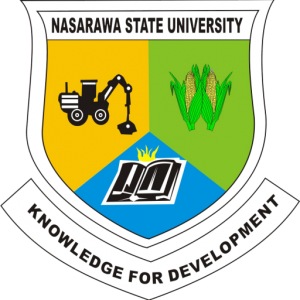
Welcome address by H O D
Programmes
- Ph.D. Clinical Psychology
- Ph.D. Forensic And Correctional Psychology
- Ph.D. Industrial Organizations Psychology
- M.Phil./Ph.D. Psychology
- M.Sc. Clinical Psychology
- M.Sc. Forensic And Correctional Psychology
- M.Sc. Industrial/Organizational Psychology
- PGD Psychology
- B.Sc. Psychology
- B.Sc. Psychology (Lincoln Uni)
The department of Psychology in Nasarawa State University was established in 2001 as one of the pioneer departments in the university. At its inception, the department had three Assistant Lecturers with Nze, Chukwuemeka Leonard as the coordinator for one academic session. Currently the department is headed by Harri Sylvester Atama.
The department was established at the inception of the university i.e. in the year 2002.
The major objective and focus of the department is to train students to acquire psychological knowledge and skills to be able to identify psychological and adjustment problems of mankind in general, and to use such knowledge, skills and techniques to manage or help people with adjustment problems as well as enhancing the lives of even the healthy. In short, special, attention is focused on teaching the application of psychological knowledge and skills on identifying and managing human problem.
- To instill in psychology students a sense of enthusiasm for and identify with psychology as a profession, appreciation of it application in different contexts, and environment, and to involve students in an intellectually stimulating and satisfying experience of learning and studying.
- To provide students with a broad and balanced foundation of psychological knowledge and practical skills
- To develop in psychology students the ability to apply their psychological knowledge and skills (such as analysis of behaviors etiology, patterns, prevalence and epidemiology, using the principles of cognition, learning motivation, emotion, adjustment, conflicts, attitudes, beliefs, values intelligence, personality leadership and inter personal skills etc) in proffering solutions to theoretical and practical problems of psychology and society.
- To develop in’ students, through an education in psychology a range of transferable skills of value in psychological social organizational, industrial educational, health and cultural employment environment, by the use of ”” cognitive and creative methods of social engineering.
- To provide students with a knowledge and skill base from which they can proceed to further studies in specialized area of psychology (such as health, clinical IT organizational industrial – managerial, artificial intelligence social human resources management, political educational Forensic environment psychology, etc) or multi disciplinary areas involving psychology.
- To create in students an appreciation of the important of psychology in a development third world society like Nigeria in relation to industrial, economics, environment and socio-cultural contexts issues, problems and Policies especially as they relate to existential and epistemological values, attitudes and beliefs.
Coming Soon
Coming Soon
Departmental Board
The Departmental Board is made up of all lecturers in the Department except Graduate Assistant with the Head of Department as the Chairman. The Departmental Board organizes and controls the teaching of all courses in the Department and the examination held in those courses.
| Name | Portfolio |
|---|---|
| Head of Department (HOD) | Chairman |
| All Academic Staff (Except Graduate Assistant) | Member |
Entry Requirements
Five O/Level credits in Government or History, English Language, Mathematics, Biology and three other subjects from Arts, Social Sciences or Science.
ND
Government and any two Arts & Science Subject.
English Language
English Language
Staff Profile
| S/No | Name | Rank | Institutional E-mail |
| 1 | Francis Bala Aku | Professor | akwashfba@nsuk.edu.ng |
| 2 | Andrew E. Zamani | Professor | zamaniae@nsuk.edu.ng |
| 3 | John Egbeazine | Associate Professor | oshodie@nsuk.edu.ng |
| 4 | Lanshima O. Lawrence | Senior Lecturer | lanshimaol@nsuk.edu.ng |
| 5 | Dr. Alhassan Emmanuel Onu | Associate Professor | ------ |
| 6 | Musa Abubakar Tafida | Senior Lecturer | musaat@nsuk.edu.ng |
| 7 | Audu Godiya | Lecturer I | audugodiya@nsuk.edu.ng |
| 8 | Monday Akawu | Lecturer I | ------ |
| 9 | Shafa Abdul Yunus | Lecturer I | shafaabdulyunus@nsuk.edu.ng |
| 10 | Laraba Samuel Baba | Lecturer I | larabasamuel@nsuk.edu.ng |
| 11 | Bala Nalah Augustine | Lecturer I | ------ |
| 12 | Kenku A. Akeem | Lecturer I | ------ |
| 13 | Sani Aboki Oshishepo | Lecturer II | sanioshishepo@nsuk.edu.ng |
| 14 | Hadiza Ibrahim Dahiru | Lecturer II | hadiza.dahiru@nsuk.edu.ng |
| 15 | Sule Ahmadu Sani | Lecturer II | ------ |
| 16 | Suleiman Nafisat Ogah | Lecturer II | ------ |
| 17 | Umar Shittu Shuaibu | Lecturer II | ------ |
| 18 | Doka Jerry James | Assistant Lecturer | ------ |
| 19 | Vakpa Iliya | Assistant Lecturer | ------ |
| 20 | Anjugu Emmanuel John | Graduate Assistant | ------ |
| 21 | Tanimu Hamza Rikum | Graduate Assistant | ------ |
List of Research/Publications
| S/No | Title | Contributors |
| 1 | ------------ | ------------ |
| 2 | ------------ | ----------- |
| 3 | -------------- | ------------ |
| 4 | ||
| 5 | ||
| 6 | ||
| 7 | ||
| 8 | ||
| 9 | ||
| 10 |
Upcoming Workshop/Conferences


